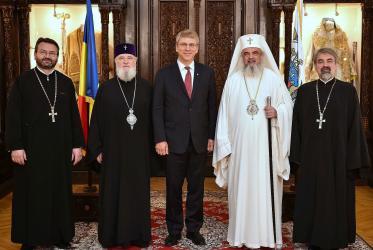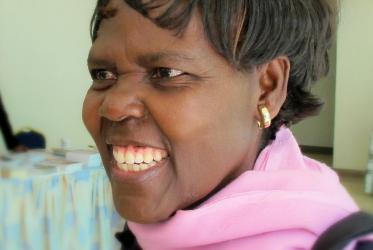Displaying 61 - 80 of 81
Basel University honors Ghanian Methodist theologian
09 December 2015
WCC urges responsibility for and support to the refugees in Europe
04 September 2015
Christians around the world pray for unity
22 January 2015
Momentum builds for ban on nuclear weapons
16 December 2014
Weaving together personal faith and climate change
23 September 2014
WCC honours the legacy of Mandela
06 December 2013









